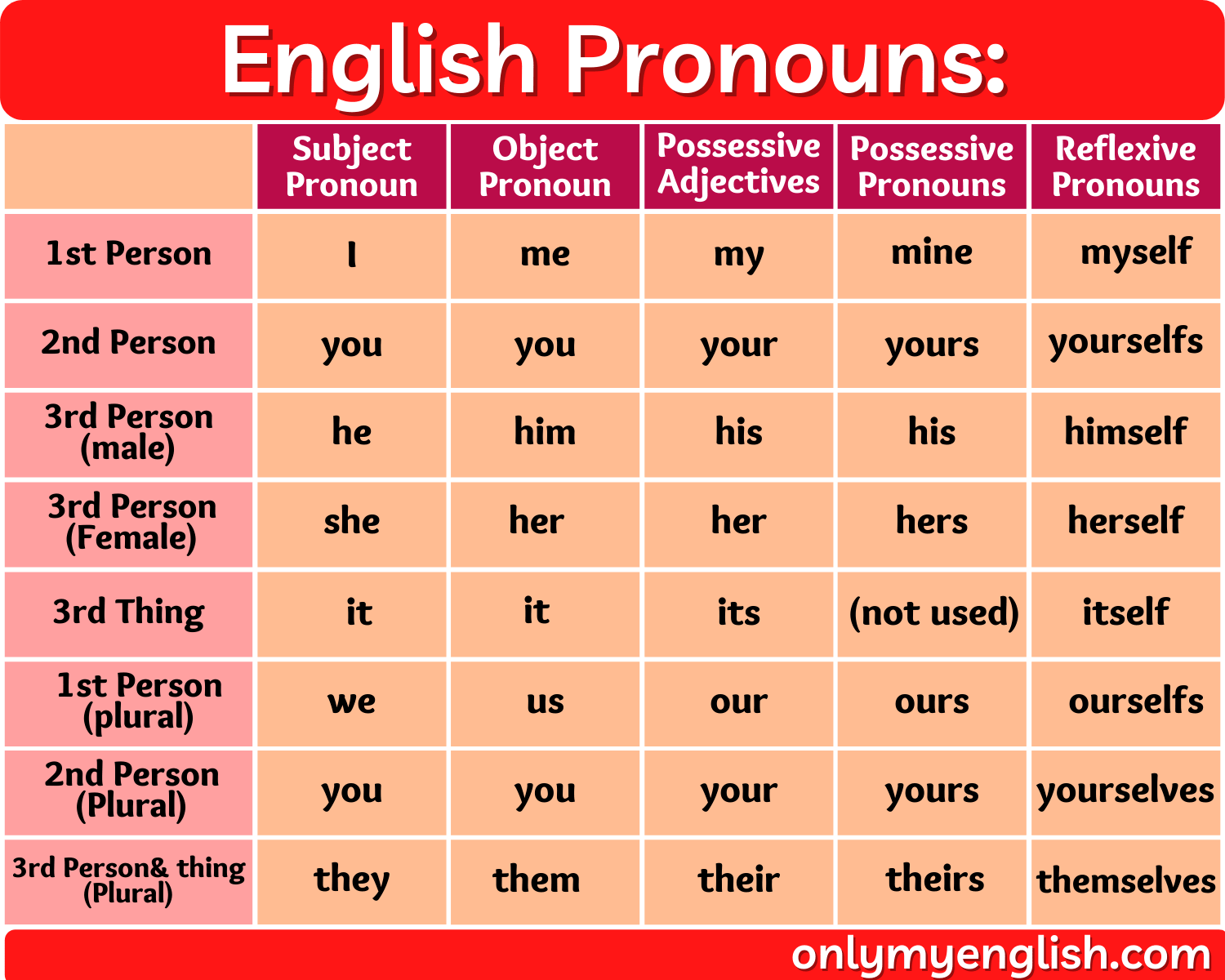
In the fifth sentence, myself is the pronoun, since it is used to refer to I.

In the fourth sentences, they are the pronoun, as it is used to refer to Mr. What is a pronoun A pronoun is part of speech that takes the place of a noun (person, place, thing, or idea) or noun phrase. In the third sentence, who is the pronoun, since it is used to refer to the students. In the second sentence, her is the pronoun, since it is used in the place of Sally. In the first sentence, he is the pronoun, since it is used in the place of Mr.

I am angry with myself for screaming at you. The noun that is replaced by a pronoun is called an antecedent. Kelly may not attend the party as they are on vacation right now.ĥ. A pronoun is a word that can replace a noun in a sentence. The students who are taking the examination should wait here.Ĥ. Lee bought a house after he had saved enough money.ģ. Identify the pronouns in the following sentences.ġ. Let us do some exercises to see whether you have understood the concept of pronouns. Using pronouns appropriately is absolutely necessary in speaking and writing grammatically correct English.Įxamples of pronouns are you, I, he, she, it, we, they, anyone, everyone, himself, myself, nobody, yourself, who. If we did not use the pronoun, the sentences would be as follows: We use She so that the name of the girl, Susie, need not be repeated in the second sentence. We use a pronoun so that a noun need not be repeated. What is a pronoun? A pronoun is a word that takes the place of a noun. Demonstrative Pronounsĭemonstrative pronouns are used in place of particular things to show which one we’re discussing.After nouns, pronouns is the next major grammatical category in the English language. Make sure not to confuse possessive pronouns with possessive adjectives, though! The latter always modify a noun: e.g., you would say “It is my car” (adjective) or “The car is mine” (pronoun), not “It is mine car” or “The car is my.” 2. There are also possessive forms of these pronouns used to indicate possession or ownership. There are different personal pronouns depending on whether we’re referring to the subject or object of a sentence, grammatical person, gender, and the number of things/people in question. Personal pronouns are used in place of a specific person or thing. But the best term to use at any point depends on the situation, so you need to understand how different types of pronoun work. That’s because pronouns can take the place of other nouns in a sentence, saving us from having to repeat the same words over and over.

Pronouns are to language what screws are to flat pack furniture: they might seem insignificant at first, but without them everything else would fall apart.


 0 kommentar(er)
0 kommentar(er)
